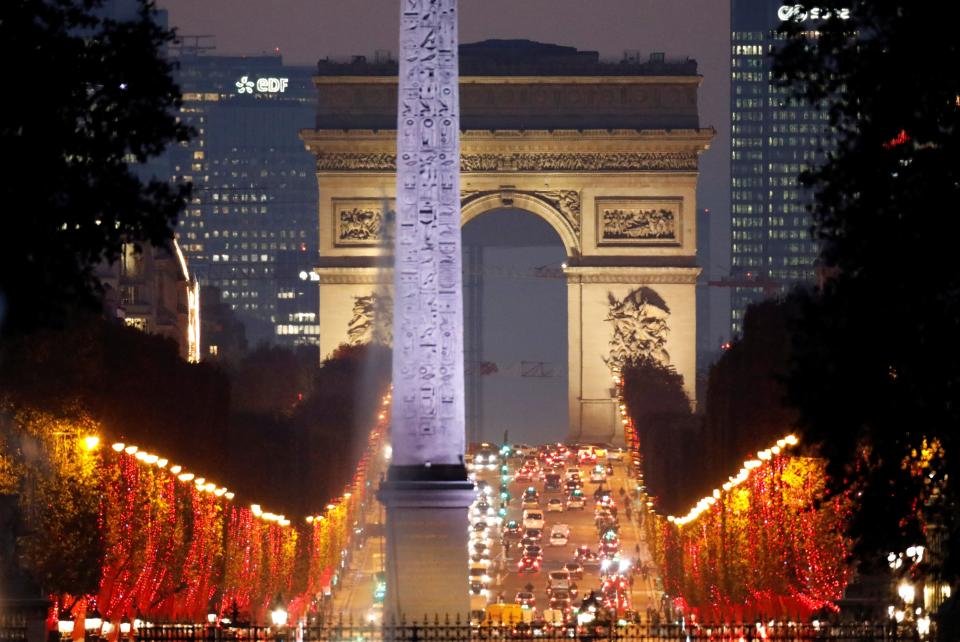‘Marble Arch looking fancy’: New York Post mocked after using Arc de Triomphe picture for UK coronavirus story

The Arc de Triomphe is one of Paris’s most iconic landmarks
(REUTERS)A photo of Paris’s Arc de Triomphe has sparked widespread derision on social media after it was used as the lead image on a story about… the UK.
The New York post placed the picture of the world-famous arch looming over a glittering Champs Elysees under its headline “UK plans ‘Christmas bubbles’ for families to celebrate amid COVID-19”.
And while the caption clarifies that it is a photo of the French capital’s most famous boulevard, many Twitter have suggested it was perhaps confused with a more diminutive London landmark.
“Marble Arch looking extremely fancy and also v. French,” tweeted one user.
“This is Edgware Road leading up to Marble Arch in London,” joked another, adding: “The only road in the UK where cars must drive on the right hand side.”
Marble Arch looking extremely fancy and also v. French https://t.co/RA6jnellTA
— Suchandrika (@SuchandrikaC) November 27, 2020
“Interesting to see why Marble Arch is trending. Meanwhile, I'm sitting here having a coffee at Brighton Pavilion,” commented another – alongside a picture of the Taj Mahal.
A number of people shared photos of other global wonders, attributing them to British locations – both real and fictional.
“I know I'm nearly home to visit me Ma in Hull when I pass the Humber Bridge,” wrote another above a picture of San Francisco’s Golden Gate Bridge.
“Never mind mind Marble Arch, the main attraction this Christmas is, of course, Barnard Castle,” wrote one user beside an animation of Harry Potter’s Hogwarts Castle.
Greetings from sunny Broadstairs. pic.twitter.com/uzL5HseMdX
— Gary Norwood (@GaryNorwood2) November 27, 2020
Another shared a picture of J R R Tolkein’s fictional realm of Mordor, writing: “Greetings from sunny Broadstairs.”
The article in the US publication begins by discussing Britain’s plans for Christmas in light of the Covid-19 pandemic, before moving on to briefly touch on the situation in France and other neighbouring countries.
The New York Post has yet to comment on whether the photo was selected in error or just considered appropriate as part of a broader European round-up.

 Yahoo Movies
Yahoo Movies 